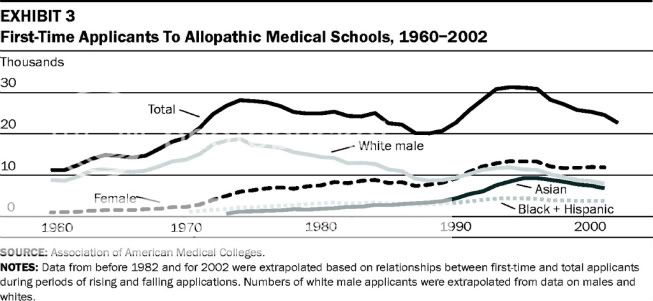I've been to India myself, both big cities and more rural areas, and I've seen plenty with my own eyes. I think India is an amazing country that is definitely going places, and I have no argument that India has many highly talented doctors, engineers, and so forth. But by any measure, the country's health care system is in miserable shape. Here are some eye-opening statistics from India Together, a website that originates in India:
"Let us look at our health crisis. First, public health expenditure in India is amongst the lowest in the world as a share of GDP, at less than 1 per cent. What is more, as a proportion of the total health expenditure, it accounts for under 20 per cent, making India a member of a small group of nations in extreme distress - like Cambodia and Afghanistan. Private health expenditure accounts for 80 per cent of the total health care costs.
Second, most of the private expenditure is out-of-pocket (nearly 97 per cent), as there is neither health insurance coverage for the bulk of the people, nor a viable risk-pooling mechanism. As a result, the economic consequences of ill health are devastating for most families. Surveys show that a single episode of hospitalisation costs a family about 60 per cent of the annual income, on average. This high average out-of-pocket expenditure applies to all cases of hospitalisation. This is because even in public hospitals, costs are incurred for transport, accommodation and board for the patient and attendants, bribes, and often diagnostic investigations at private facilities and purchase of drugs unavailable in government hospitals. As a result, 40-60 per cent of hospitalised patients borrow heavily at high interest, and up to 30 per cent end up slipping below the poverty line on account of healthcare costs."
http://www.indiatogether.org/2007/jan/hlt-hltcare.htm
And how about this, from the Wharton School's wharton@india website?
"If inefficiency is the path to opportunity, the future for India's health care sector may be bright. Just how close that future is varies by market segment. In the case of life sciences, its arrival could coincide with industry participants' greater willingness to accept risk, while health insurance could seize its day amid rising treatment costs. As for health care delivery's chance to shine, that could be more in the distant future, stymied by a lack of infrastructure investment and trained professionals. Two recent conference panels, one at Wharton and the other at Harvard University, explored the state of India's health care system. Among the conclusions: Government and industry need to increase health care investment and employment and make high-quality care more affordable and available to all.
The Wharton India Economic Forum panel titled, "India's New Mandate: Addressing the Health Care Paradox," portrayed a system of contradictions. On the one hand, medical tourism is on the rise. On the other, tuberculosis seems unstoppable in certain states. "Paradox is one characterization," said Bhaven Sampat, professor of health care management at Columbia University and panel moderator. "But challenge is another. Like every rapidly developing country, India is faced with the challenge of how to manage growth with distribution, how to balance equity with efficiency, and how to ensure that as parts of the Indian health care sector enter the worldwide elite, the masses are not left behind."
An assessment of Indian health care reveals poor performance on the key dimensions of coverage, purchasing and delivery. "Despite India being the largest exporter of generics, most people have never seen a tablet," said Rajiv Gulati, director of India-China strategy at Eli Lilly. "Patients from the U.S. and the UK come to India for treatment, but approximately 70% of Indian patients have never seen a doctor." "
http://knowledge.wharton.upenn.edu/india/article.cfm?articleid=4277
I rest my case.




